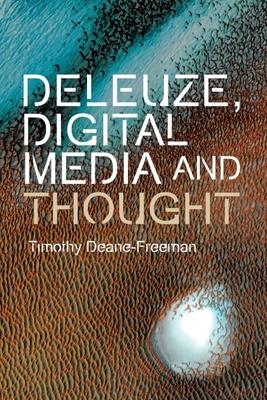Timothy Deane-Freeman traces Deleuze's remarks about the digital to reveal both their origins and implications. In so doing, we encounter a position which is fundamentally ambiguous. On the one hand, digital techniques are intimately related to what Deleuze calls 'societies of control', which deploy them in order to close down potential spaces of creativity and resistance. On the other, digital images take up the mantle of cinema, displacing habitual forms of cognition and forcing us to think in new ways. Deane-Freeman traces these dual impulses through the images of cinema, television and social media, as well as explicating key Deleuzian concepts, including virtuality, immanence and the outside.

Timothy Deane-Freeman traces Deleuze's remarks about the digital to reveal both their origins and implications. In so doing, we encounter a position which is fundamentally ambiguous. On the one hand, digital techniques are intimately related to what Deleuze calls 'societies of control', which deploy them in order to close down potential spaces of creativity and resistance. On the other, digital images take up the mantle of cinema, displacing habitual forms of cognition and forcing us to think in new ways. Deane-Freeman traces these dual impulses through the images of cinema, television and social media, as well as explicating key Deleuzian concepts, including virtuality, immanence and the outside.
Hardcover
$116.11